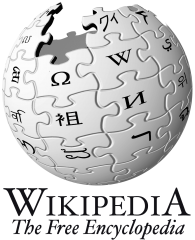Nowhere in marketing is there more confusion, more misinformation, and fewer authorities you can trust than when it comes to ethical Wikipedia marketing.
From the media’s routine misrepresentations to make a good story and astroturfing to businesses defending the ethicality of their practice and PR agencies offering advice after just learning the basics of Wikipedia marketing themselves; sources of poor information are more abundant than good advice.
With so much misinformation about Wikipedia marketing in circulation, it’s about time we debunk some common myths.
Myth #1: Wikipedia Marketing is Crowdsourced and Marketers are Just Part of that Crowd
When marketing professionals pretend to be crowdsourced online participants, it’s called astroturfing – and it’s against the law.
The Federal Trade Commission requires anyone with a financial connection to the company disclose it online.
Additionally, a court ruling in Germany found that in at least some cases using Wikipedia to promote your business may be a form of illegal covert advertising, because readers presume the content is crowdsourced, not an advertisement written by the company.
Wikipedia is also in the process of updating its Terms of Use to make your legal obligation to disclose a financial connection more clear.
That doesn’t mean you can’t be an organic and positive part of Wikipedia, but marketing professionals must behave differently than the anonymous crowd.
Myth #2: Editing a Variety of Articles Will Make Your Changes More Likely to “Stick”
While this can be mildly effective, in most cases it is a tactic used to create a persona as a regular, volunteer, crowdsourced editor with a wide range of interests.
Wikipedia astroturfing operations may bribe established editors, maintain a network of accounts that purport to be crowdsourced, or even create fake identities in order to hide their financial connection and skirt their legal/ethical obligations.
Often their clients are not aware the practice is potentially illegal, unethical, and against the Wikipedia rules.
On the other hand, it is a good thing to edit a wide range of articles to gain perspective, learn the rules and meet other editors, if your financial connection is disclosed on the article(s) where you are participating as part of your job.
Myth #3: Our Article is Erroneous and Unfair, But Our Hands are Tied
The overly simplistic message that many marketing professionals get from media controversies is that they must be completely hands-off, accepting torment as they helplessly watch factual errors and other problems on the corresponding Wikipedia page.
Getting corrections made is not as hard as it’s made out to be.
Disclose that you work for the company and submit a concise, polite, and clear request on the Talk page of the article.
Draw attention to your request at the Conflict of Interest Noticeboard and if it gets archived without response, as a last resort, email [email protected].
Keep in mind, one editor’s “factual error” is another editor’s “fact” and Wikipedians usually cannot correct errors made by the media and repeated on Wikipedia.
Myth #4: We Can Do that as Long as it’s Sourced
Not everything that can be cited belongs in Wikipedia.
For example, large lists of awards, partners, products, executives, or philanthropic activities are often signs of promotional editing by the company, and in most cases are not acceptable even when sourced.
Using the company website, news releases, media release reposts, blurbs, and other sources that just repeat information from the company falls in the same category.
Even promotional or sensational content found in credible, independent sources such as the media are subject to good judgment.
This perspective of adding anything that can be cited often comes from the attitude of “what are we allowed to do” rather than meeting the expectation that even editors who are marketers focus on what is fair, neutral, and the best for Wikipedia.
Myth #5: Our Edits are Not Being Considered Fairly
A wide range of circumstances can lead marketing professionals to feel like we are being treated unfairly on Wikipedia.
The most common is that we are making promotional or biased edits and may not realize it, so we accuse other editors of having an agenda or bias against us.
In other cases, marketing professionals encounter what we call a “point-of-view pusher,” who would be hostile to any editor who tried to change the article from their perspective.
In other words, just because there is confrontation doesn’t mean you are being treated any differently from any other Wikipedian.
Some Wikipedians will be overly defensive about a marketer’s edits, while others are overly hostile and many make poor edits in general.
Consistency cannot be expected.
Unfortunately, the cottage industry of Wikipedia marketing has a very strong black-hat element and many so-called “experts” aren’t really.
Before taking anyone’s advice, ask them how many edits they’ve made, how many ranked articles (Good Article or Featured Articles) they’ve written, ask for examples, and evaluate whether they really have the credentials to be offering advice.
